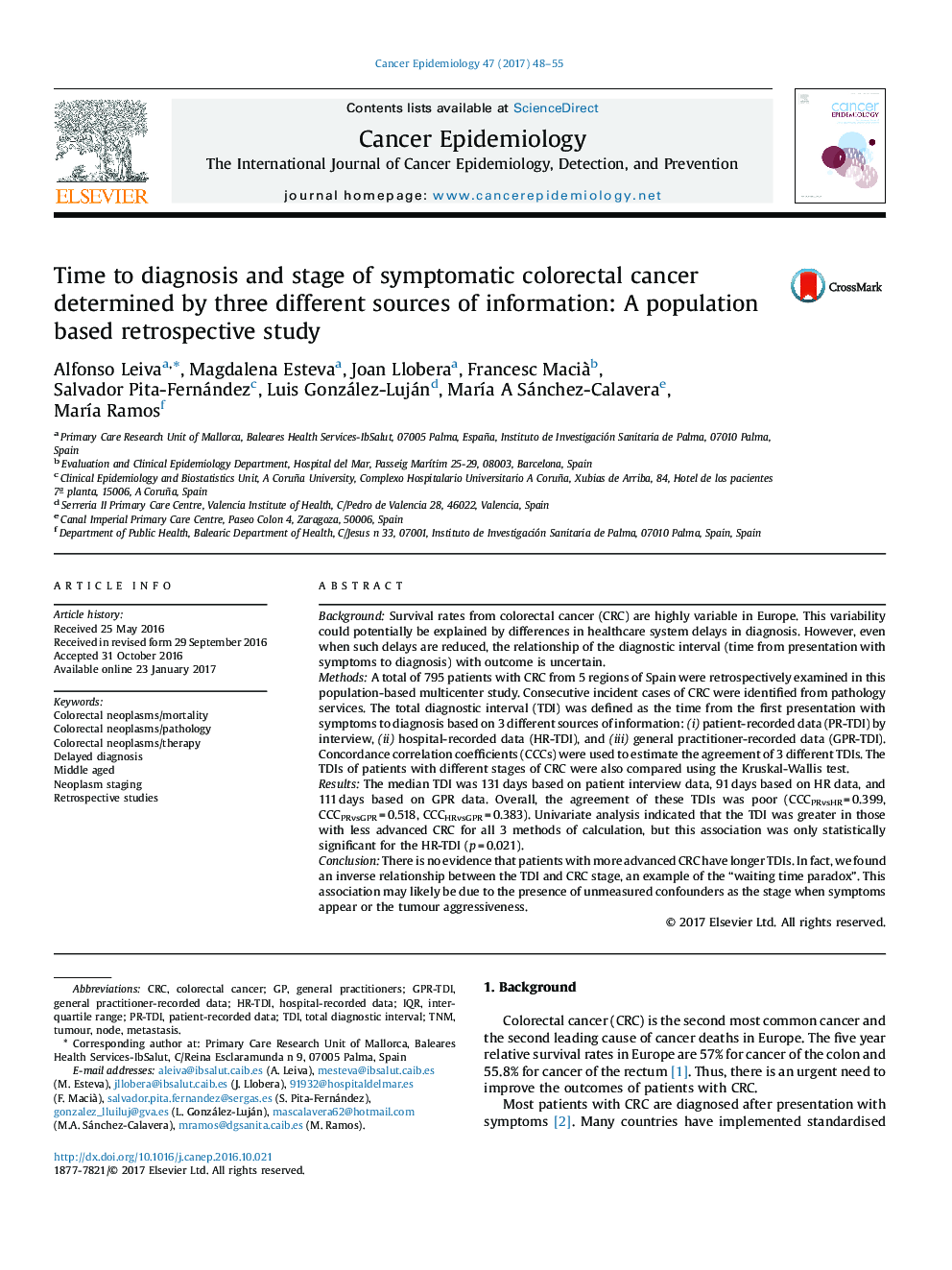| Article ID | Journal | Published Year | Pages | File Type |
|---|---|---|---|---|
| 5524931 | Cancer Epidemiology | 2017 | 8 Pages |
â¢We found an inverse relationship between total diagnostic delay and colorectal cancer stage.â¢We describe a new model to explain the causal pathway between increased time to diagnoses and CCR stage.â¢The stage when symptoms appear could explain most of the confusion between total diagnostic delay and cancer outcomes.
BackgroundSurvival rates from colorectal cancer (CRC) are highly variable in Europe. This variability could potentially be explained by differences in healthcare system delays in diagnosis. However, even when such delays are reduced, the relationship of the diagnostic interval (time from presentation with symptoms to diagnosis) with outcome is uncertain.MethodsA total of 795 patients with CRC from 5 regions of Spain were retrospectively examined in this population-based multicenter study. Consecutive incident cases of CRC were identified from pathology services. The total diagnostic interval (TDI) was defined as the time from the first presentation with symptoms to diagnosis based on 3 different sources of information: (i) patient-recorded data (PR-TDI) by interview, (ii) hospital-recorded data (HR-TDI), and (iii) general practitioner-recorded data (GPR-TDI). Concordance correlation coefficients (CCCs) were used to estimate the agreement of 3 different TDIs. The TDIs of patients with different stages of CRC were also compared using the Kruskal-Wallis test.ResultsThe median TDI was 131 days based on patient interview data, 91 days based on HR data, and 111 days based on GPR data. Overall, the agreement of these TDIs was poor (CCCPRvsHR = 0.399, CCCPRvsGPR = 0.518, CCCHRvsGPR = 0.383). Univariate analysis indicated that the TDI was greater in those with less advanced CRC for all 3 methods of calculation, but this association was only statistically significant for the HR-TDI (p = 0.021).ConclusionThere is no evidence that patients with more advanced CRC have longer TDIs. In fact, we found an inverse relationship between the TDI and CRC stage, an example of the “waiting time paradox”. This association may likely be due to the presence of unmeasured confounders as the stage when symptoms appear or the tumour aggressiveness.
